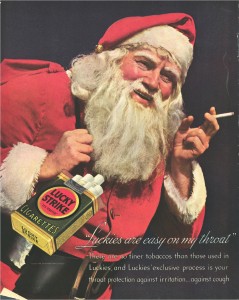After Decades, Is the FDA Ready to Crackdown on Tobacco Use?
Is the federal government finally getting tough on tobacco?
The Food and Drug Administration (FDA) recently announced it has rejected the approval of four proposed tobacco products while authorizing the marketing of two new ones.
This is the first time the federal agency has exerted any control over tobacco products. Four years ago, the Family Smoking Prevention and Tobacco Control Act gave the agency new regulatory powers over Big Tobacco under the authority of public health.
Critics wonder why it has taken four years to exert that authority.
Tobacco products are sold by establishing a substantial equivalence to a product already on the market, ensuring no additional harm will be introduced to the public, as opposed to the safe and effective standard required of pharmaceuticals.
The two cigarettes approved for sale were the Lorrilard Tobacco Newport Non-Menthol Gold Box 100s and Newport Non-Menthol Gold Box. The FDA said they do not raise different questions of public health. Under the Family Smoking Prevention and Tobacco Control Act the cigarette manufacturer cannot claim it has FDA approval because it has not met any “safe and effective” standard for consumers.
Ironically, menthol cigarettes are the focus of the next FDA regulation. The agency recently issued an Advance Notice of Proposed Rulemaking and is asking for public input over the next 60 days as it considers tightening controls over menthol cigarettes.
Menthol cigarettes are preferred by about 40 percent of young smokers and 30 percent of adults, mostly African-American and minority adults, so the agency has released its evaluation of the health effects of menthol versus non-menthol cigarettes.
Addressing young smokers by cracking down on menthol-flavoring could potentially have an enormous impact on the numbers of Americans who take up smoking.
An American Cancer Society recently reported one in five cancer deaths around the globe and 1.5 million annually are linked to tobacco use with the death rate expected to rise dramatically if tobacco use continues. If use was cut by half, it could prevent 300 million deaths over the next 50 years. Forty-eight million Americans currently smoke and the Centers for Disease Control and Prevention (CDC) believes second-hand smoke may kill 443,000 Americans every year.
Tobacco use continues to be the leading cause of preventable death and disease in the U.S.
We’ve always known the FDA allows industry to set the rules, and it appears tobacco regulation is no different. Since tobacco is already on the market and already poses a harm to the public, let new products on because they do not present any additional harm. Is this what we expect from a watchdog agency or is it an example of being a lap dog.
Meanwhile there are about 4,000 new tobacco products waiting to receive FDA approval but really does that matter? That’s because many product makers rushed in to beat a deadline and dumped 3,500 tobacco products on the market without FDA authorization. There they will stay until the industry yanks them off for failing to meet specific standards, reports ABC News.
The next decision on the horizon is whether or not to ban the mint flavoring found in menthol cigarettes. Studies have shown that about 40 percent of young smokers and 30 percent of adults smoke menthol cigarettes. The addition flavoring makes a harsh cigarette more palatable therefore easier to start smoking and more difficult to quit. The FDA is soliciting public comment over the next 60 days about how to regulate the menthol additive. In 2009, Congress exempted menthol from a ban on cigarette flavorings, reports the New York Times.
Share This



